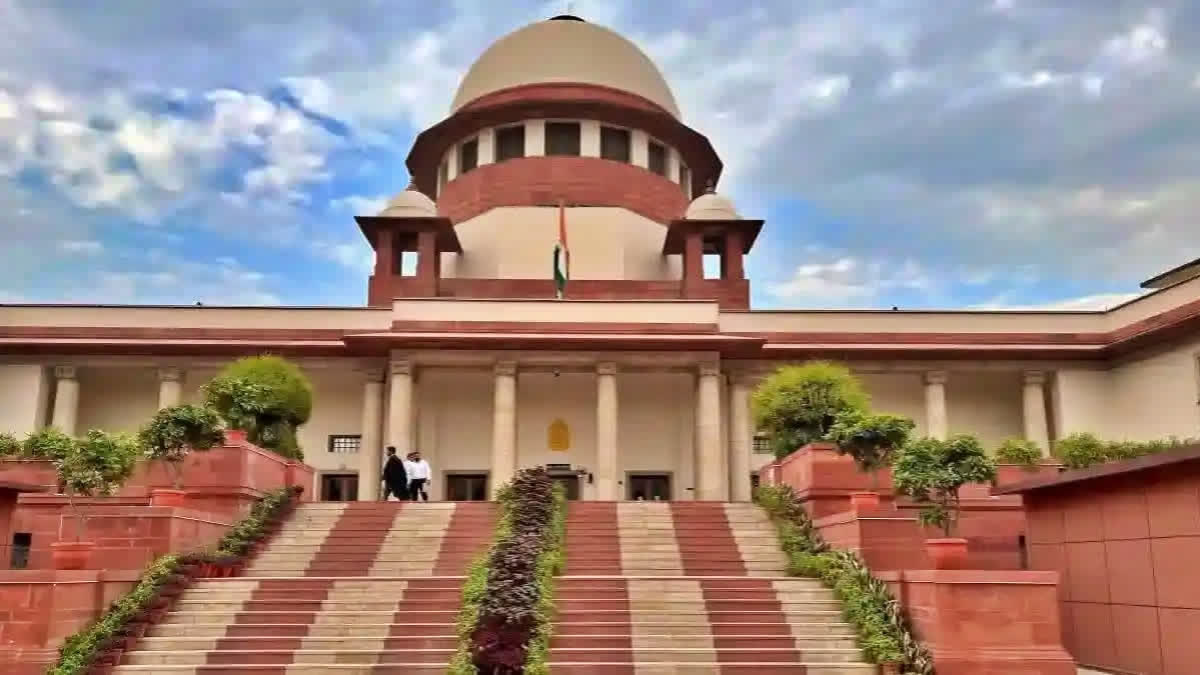New Delhi: The Supreme Court on Wednesday said that a fair trial is seriously prejudiced if cross examinations are being routinely adjourned and stressed that cross examination can be deferred only in exceptional cases and for that reason should be recorded by the court.
A bench of Justices Sudhanshu Dhulia and Rajesh Bindal said: “This court had, on more than one occasion, condemned this practice of the trial court where examinations are deferred without sufficient reasons…..”
The bench made this observation while upholding conviction of the Delhi police constable Surender Singh in the murder of a person inside the police station. The bench said: “cross-examination can be deferred in exceptional cases and for reasons to be recorded by the court, such as under sub-section 2 of Section 231 of CrPC but even here the adjournment is not to be given as a matter of right and ultimately it is the discretion of the court”.
The bench observed that cross-examination of the main eyewitness, an injured woman constable, was conducted after more than two months of her examination in chief. However, she remained steadfast in her deposition.
Sounding a note of caution for the trial courts, the bench said in the present case long adjournment was given after examination-in-chief, which should never have happened, and “but to our mind the main reason would be that this may affect the fairness of the trial and may even endanger, in a given case, the safety of the witness”.
"Only in very exceptional cases, and for reasons to be recorded, the cross-examination should be deferred, and a short adjournment can be given after taking precautions and care, for the witness, if it is required. We are constrained to make this observation as we have noticed in case after case that cross examinations are being adjourned routinely, which can seriously prejudice a fair trial," said Justice Dhulia, who authored the judgment on behalf of the bench.
The prosecution claimed that on June 30, 2002, the petitioner sprayed eight to nine bullets upon the deceased with his carbine because he was angry with the deceased for having an illicit relationship with his wife. The petitioner argued that he committed the act in self-defence and there was a grave and sudden provocation.
“The plea of self-defence taken by the accused/appellant is childish to say the least, in the light of the facts of the case, and on the weight of the evidence of the prosecution. The case of the defence that the deceased came to the police station 'unarmed' to kill the appellant knowing very well that the appellant was armed with a weapon is an awkward attempt to present the deceased as the aggressor. It does not make any sense”, said Justice Dhulia, adding that in the present case on every possible count the case is nothing but a case of murder.
The bench said the nature of weapon used, the number of gun shots fired at the deceased, and the part of the body where gunshots are fired, all point towards the fact that the appellant was determined to kill the deceased.
Citing eyewitness accounts, the bench said it proves that the appellant did not stop at the initial firing of the shot, which he had fired from a close range. “Instead, he continued to spray bullets on the deceased even when he was trying to escape. The eyewitness accounts of four police personnel, who were all present at the Police Station at that point of time, establish a case of murder beyond any reasonable doubt”, said the bench.
The apex court declined to interfere with the high court judgment passed on May 18, 2011, dismissing petitioners' appeal. The high court upheld the petitioner's conviction and sentence by the trial court for offences under Sections 302 and 307 of the IPC, for which he was sentenced to life imprisonment and 7 years of rigorous imprisonment respectively. Singh moved the apex court against the high court order.
Read More



